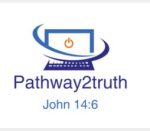Problem: Some scholars believe that Acts 15 and Galatians 2:1-10 are describing the same event from two different perspectives, because these two events have so much in common.[1] First, both passages describe an important event in Jerusalem. Second, both passages have the same people involved (e.g. Paul, Barnabas, Peter, James and Judaizers). Third, both passages seem to be dealing with the same subject (i.e. Gentile acceptance and participation in both salvation and fellowship). Fourth, both passages mention that circumcision is not necessary for salvation. And fifth, both passages refer to the internal struggles of Christian believers. Are these passages describing the same event?
petra1000
Gal. 2:2, 6, 9 – Why does Paul write that these men were of reputation? Is he being condescending?
Problem: Paul writes about the other apostles in a bizarre way. It almost seems as though he is talking down to them. He writes, “To those who were of reputation…” (Gal. 2:2), “Those who were of high reputation (what they were makes no difference to me)…” (Gal. 2:6), and “Who were reputed to be pillars…” (Gal. 2:9) These descriptions almost seem sarcastic. Was Paul trashing the other apostles?
Gal 2:1 – What did Paul do in the 14 year period before his second journey?
Problem: Scholars have referred to this period of Paul’s life as “Paul’s Lost Years.” Many have held that Paul was reflecting on the Old Testament out in the wilderness somewhere like Elijah. Perhaps, during these so-called “Lost Years,” Paul was studying to become an official minister in the church. Is this the case?
Gal 1:15 – Does this passage support the doctrine that God predestines some people to heaven and others to hell?
Problem: Some Calvinist interpreters hold that this passage supports the notion that God predestines humans for heaven or hell, while they are still in their “mother’s womb.” Is this the case?
Gal 1:13 – Did Paul’s personality change after his conversion?
Problem: God personally created us in our mother’s womb (Ps. 139:13). Therefore, our personality and temperament were created by God. Does God change our personality, when we come to Christ?
Gal 1:11-12 – Did Paul receive the Gospel from man or not?
Many have argued that there is a necessary contradiction between 1 Corinthians 15 and Galatians 1. In 1 Corinthians 15, Paul received a creed (formulaic statement of belief) and passed it on to the Corinthians. This creed was probably composed shortly after Jesus‘ crucifixion by various Christians. Many scholars argue that Paul likely received this creed from the Jerusalem apostles (cf. Gal. 1-2). However, Paul says in Galatians 1:11-12 that he did not receive the Gospel from man.
Gal. 1:6-9 – How can Paul desire these men to be “accursed,” when Jesus tells us to “love our enemies?”
Problem: Jesus taught that we should love our enemies (Mt. 5:44), but Paul prays a curse over his enemies. This word for “accursed” is anathema. Colin Brown writes,

